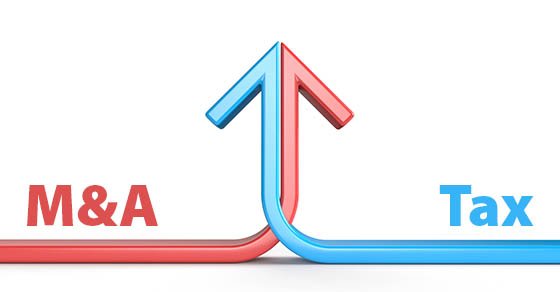Key Tax Issues In M&A Transactions
 There was a dramatic decrease in recent Mergers and Acquisitions activity last year. This is due to rising interest rates and a slowing economy. The total value of M&A transactions in North America in 2022 was down 41.4% from 2021, according to S&P Global Market Intelligence.
There was a dramatic decrease in recent Mergers and Acquisitions activity last year. This is due to rising interest rates and a slowing economy. The total value of M&A transactions in North America in 2022 was down 41.4% from 2021, according to S&P Global Market Intelligence.
But based on some recent mergers and acquisitions activity, analysts are expecting an upward trend for 2023 in certain industries. If you’re considering buying or selling a business, it’s important to understand the tax implications.
Two Approaches
Under current tax law, you can structure a transaction in two ways:
1. Stock (or ownership interest)
A buyer can directly purchase a seller’s ownership interest if the target business operates as a:
- C or S corporation.
- Partnership
- Limited liability company (LLC) that’s treated as a partnership for tax purposes.
The current 21% corporate federal income tax rate makes buying the stock of a C corporation somewhat more attractive. That’s because the corporation will pay less tax and generate more after-tax income. Plus, any built-in gains from appreciated corporate assets will be taxed at a lower rate when they’re eventually sold.
The current individual federal tax rates have also made ownership interests in S corporations, partnerships and LLCs more attractive. Reason: The passed-through income from these entities also is taxable at lower rates on a buyer’s personal tax return. However, individual rate cuts will be expiring at the end of 2025.
2. Assets
A buyer can also purchase the assets of a business. This may happen if a buyer only wants specific assets or product lines. And it’s the only option if the target business is a sole proprietorship or a single-member LLC that’s treated as a sole proprietorship for tax purposes.
What Buyers Want
For several reasons, buyers usually prefer to buy assets rather than ownership interests. In general, a buyer’s primary goal is to generate enough cash flow from an acquired business to pay any acquisition debt and provide an acceptable return on the investment. Therefore, buyers are concerned about limiting exposure to undisclosed and unknown liabilities and minimizing taxes after a transaction closes.
A buyer can step up (or increase) the tax basis of purchased assets to reflect the purchase price. Stepped-up basis lowers taxable gains when certain assets, such as receivables and inventory, are sold or converted into cash. It also increases depreciation and amortization deductions for qualifying assets.
What Sellers Want
In general, sellers prefer stock sales for tax and nontax reasons. One of their objectives is to minimize the tax bill from a sale. That is usually achievable by selling their ownership interests in a business (corporate stock, or partnership or LLC interests) versus selling assets.
With a sale of stock or other ownership interest, liabilities generally transfer to the buyer. Additionally, any gain on sale is generally treatable as lower-taxed long-term capital gain. This is assuming the ownership interest has been on hold for more than one year.
Seek Advice Before A Transaction
Be aware that other issues, such as employee benefits, can also cause tax issues as seen in recent mergers and acquisitions. Buying or selling a business may be the largest transaction you’ll ever make, so it’s important to seek professional assistance before finalizing a deal. After a transaction is complete, it may be too late to get the best tax results. Contact us about how to proceed.
